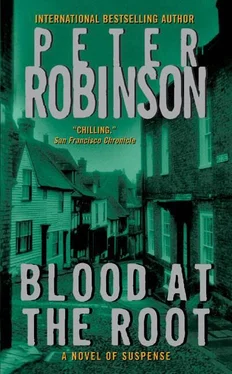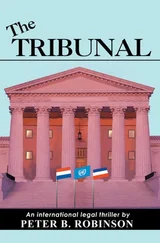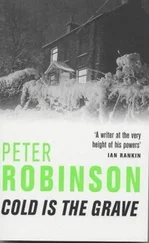Wood looked at Varney before opening his mouth. Varney nodded. “I did it,” Wood said. “I killed Jason. It was an accident. I didn’t mean to.”
“Why don’t you tell us what happened, Mark?” Gristhorpe coaxed him. “Slowly. Take your time.”
Wood looked at Varney, who nodded. “We were going back to his place, like I said before. Jason was going on about those Pakis back in the Jubilee, what he thought should be done with them. We started arguing. I told him I didn’t like that racist crap. Jason was going on about how I was really a racist deep down, just like him, and why didn’t I admit it, join the group. I laughed and told him I’d never join that band of wankers in a million years. I was pretty mad by then, so I told him that my wife was from Jamaica. Then he started insulting her, calling her a black bitch and a whore and calling little Connor a half-breed mutant. We were getting near the ginnel now and Jason was really laying into me. Really crude stuff. Like I’d betrayed the white race by marrying a nigger, and shit like that.” Mark paused and rubbed his temples. “I’d had a few drinks, more than I admitted, and more than Jason, at any rate, and sometimes I… well, I’ve got a bit of a temper when I’m pissed. I just lost it, that’s all. He came at me. I had the bottle in my hand and I just lashed out with it and hit him.”
“What happened next?”
“He didn’t go down. Just put his hand to the side of his head and swore, then he came at me again. He was strong, was Jason, but I reckon I’m probably stronger. Anyway, we started fighting, but I think the head wound had sort of weakened him and I managed to knock him down. I thought about what he’d said about Sheri and Connor and I just saw red. The next thing I knew, he wasn’t moving, and I ran off.”
“And left him there?”
“Yes. I didn’t know he was fucking dead. How could I? I thought I’d just put him out of action for a while.”
“Why did you empty his pockets?”
“I didn’t. Why would I do that?”
“Because the whole thing was a lot more deliberate than you’re saying? Because you wanted to make it look like a mugging? You tell me, Mark.”
“Superintendent,” Varney chipped in. “My client is offering a voluntary statement. If he says he didn’t empty the victim’s pockets, then I suggest you believe him. He has no reason to lie at this point.”
“I’ll be the judge of that, Mr. Varney,” said Gristhorpe. He looked at Mark again.
Mark shook his head. “I don’t remember doing that. Honest.”
Gristhorpe sniffed and riffled through some sheets of paper in front of him. “Mark,” he said finally, “Jason Fox’s injuries included a fractured skull and a ruptured spleen. Yet you say you only knocked him down?”
“That’s how it happened. I admit I lost it, I was in a rage, but I didn’t mean to kill him.”
“All right, Mark,” said Gristhorpe. “Is this the statement you want to make?”
“Yes.”
“My client will be pleading to the charge of manslaughter, Superintendent,” Varney said. “And I think there might be some room for mitigating circumstances.”
“Plenty of time for charges later,” said Gristhorpe. “Let’s just go through the story again first.” Gristhorpe turned to Susan and sighed. “Susan, go and make sure George Mahmood and his friends are released immediately. The poor sods won’t know whether they’re coming or going.”
Susan nodded and got up. As she left the interview room, she heard Gristhorpe say wearily, “Right then, Mark, once more from the top.”
Using a street map he’d bought that afternoon, Banks walked to the address Burgess had given him. Though he felt silly doing it, he had looked over his shoulder once in a while and taken a very circuitous route.
It was another brown café, this one on a street corner by Sarphatipark. The park itself was a dark rectangle wedged between blocks of tenements. It looked familiar. He was sure he had seen it before, with Sandra. It reminded him of the kind of square you’d find in Bloomsbury or Edinburgh. The café itself wasn’t the kind of place listed in the tourist guides. The wood was dark and stained with years of tobacco smoke, and most of the tables were scratched and blackened here and there where cigarettes had been left to burn.
One or two locals sitting at the bar, workingmen by the look of their clothes, turned and glanced at Banks as he walked in and found a table in the far corner. One of them said something to the man behind the bar, who shrugged and laughed, then they paid him no further attention. Only a few tables were taken, and only one of those by a young man and a woman. It was pretty much of a men’s pub by the look of it. Accordion music was playing quietly behind the bar. Welcome to hell.
The table wobbled. Banks took a beer mat and placed it under one leg. That helped. Not wanting a repeat of last night, he decided he was going to stick with beer, and not even drink many of those. That jenever could be deadly. He ordered an Amstel, lit a cigarette and settled down to wait, back to the wall, eyes on the door. After a day spent walking around the city, stopping only at a café now and then for a coffee and a cigarette, Banks was also glad of the chance to rest his legs.
As he waited, he reflected on the curious and unsettling experience he had had that afternoon. One of the places he’d walked by was a canal-side coffeehouse he remembered visiting with Sandra all those years ago. The kind of place that also sold hash and grass. It didn’t seem to have changed at all. At first he thought it couldn’t possibly be the same one, but it was. Curious, he turned back and wandered inside.
At the back, where it was darker, piles of cushions lay scattered on the floor. You could lie back, smoke your joint, look at the posters on the wall and listen to the music. He noticed a young couple there, in the far corner, and for one spine-tingling moment, in the dim light, he felt he was looking down on himself and Sandra when they were young. And he hadn’t even smoked any hash.
Shaken, he walked out into the sunshine and went on his way. It was a good five or ten minutes before he could get rid of the spooky feeling. He and Sandra had smoked some hash there with some Americans, he remembered. Dylan’s Blonde on Blonde album had been playing, the long “Sadeyed Lady of the Lowlands.” Later, they had made love in their sleeping bag in the Vondelpark, hidden away from other nighthawks by some bushes. Memories. Would he never escape them?
Just as he was lighting his second cigarette, someone walked through the door. And for the second time that day Banks felt gob-smacked.
If he wasn’t mistaken, it was the man he had last seen in Neville Motcombe’s house: Rupert Francis, the tall, gangly woodworker.
He obviously noticed Banks’s surprise. “You can close your mouth now, sir,” he said. “It really is me.”
Banks shook his head slowly. “So I see. Rupert Francis, right? And what’s with the ‘sir’?”
“Actually, I’m DS Craig McKeracher, sir,” he said, shaking hands. “That makes you my senior officer. Pleasure to make your acquaintance.” He smiled sheepishly and sat down. “I’m sorry about all the cloak-and-dagger stuff, sir, but if they found out who I really am, they’d kill me.”
Banks shook hands and collected his thoughts. The waiter came over and Craig ordered a beer.
“I think we can drop the ‘sir,’” said Banks.
Craig nodded. “If you like. I must admit you gave me the shock of my bloody life when I saw you at Nev’s place the other day. I thought the game was up right there and then.”
“You didn’t have to show yourself.”
Читать дальше












